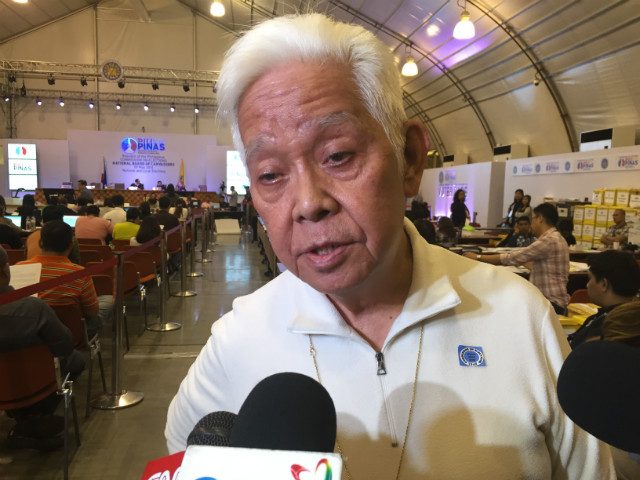SUMMARY
This is AI generated summarization, which may have errors. For context, always refer to the full article.

MANILA, Philippines – The Supreme Court (SC) on Tuesday, May 31, said it has denied an election watchdog’s petition to run after former elections chief Sixto Brillantes Jr, among others, for allegedly spying on them.
Through a petition dated March 23, poll watchdog Automated Election System (AES) Watch challenged an earlier decision by the Court of Appeals (CA).
This was the CA ruling dated September 3, 2015, and February 29, 2016, denying the writ of habeas data sought by the group.
The writ of habeas data is defined as a remedy that protects, through various means, a person’s right to privacy.
AES Watch attributed the supposed intelligence operations to Brillantes, who retired as Commission on Elections (Comelec) chairman in February 2015.
The SC said: “The writ of habeas data is an independent and summary remedy to protect a person’s right to control information regarding oneself, particularly in instances in which such information is being collected through unlawful means in order to achieve unlawful ends.”
“In the case at bench, however, there has been no showing that respondents collected information through unlawful means for an unlawful purpose,” the SC added, as quoted in its press briefing.
‘Vindicating privacy’
The High Court also said, “The Comelec was given intelligence funds for the purpose of gathering information on suspected election saboteurs, with the objective of filing the necessary cases should the facts warrant the same.”
The petitioners included Comelec critics such as former poll commissioner Augusto Lagman, Manila Auxiliary Bishop Broderick Pabillo, and lawyer Harry Roque.
In its press briefing, the SC said AES Watch “claimed that former Comelec chairperson Sixto Brillantes Jr had used intelligence funds allocated to the Comelec for spying on them.”
The High Court said the group “sought the issuance of the writ of habeas data to vindicate their privacy.”
The petitioners cited “the purported admissions” of Brillantes “that the Comelec was engaged in the gathering of information for the purpose of filing a case against election saboteurs.”
They claimed “that the threat alone was sufficient for the issuance of the writ of habeas data even in the absence of any specific overt acts.” The SC disagreed. – Rappler.com
Add a comment
How does this make you feel?
There are no comments yet. Add your comment to start the conversation.